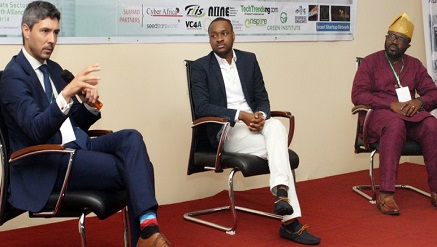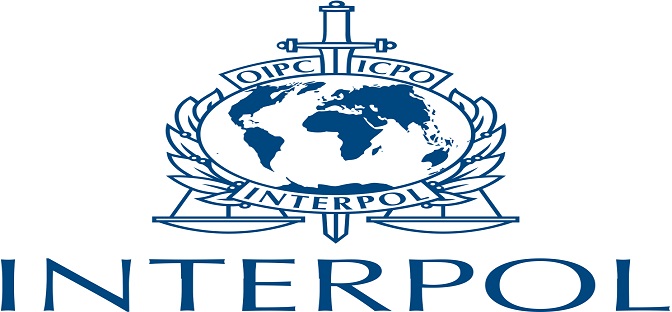News
Nigeria’s Healthcare Sector Requires Disruptive Innovative Approach- PHN

Nigeria’s healthcare sector has received billions in grants; however, the inadequacy of current health programs and stagnated results necessitates bold and disruptive innovative approaches to transform the sector.
The Managing Director and Chief Executive Officer of Private Sector Health Alliance of Nigeria (PHN) Dr. Muntaqa Umar-Sadiq, made the remark during a presentation at the just concluded Nigeria Innovation Summit (NIS) in Lagos, adding that the epidemiological transition and population growth projected in the country exacerbate the need for scalability of effective innovative approaches within the health sector.
He said that the state of health was characterised by poor outcomes, poor quality and a lack of protection from financial risk which attracted the interest of concerned Nigeria who set up PHN to mobilizes private sector to complement government’s efforts in accelerating improvement in health outcomes by focusing on innovation, impact investments, advocacy and public-private partnerships.
Interventions by PHN, Dr. Umar-Sadiq said have saved at least one million lives of women and children in Nigeria.
“The sector requires innovations that address socio-economic challenges, such as poverty and health, also drive economic growth. In the 70s and 80s, Indonesia had a dependency ratio of about 86.84. Through several interventions focused on reducing the total fertility rate in the country, the dependency ratio reduced to 51.31 in 2010. It is expected that between 1980 and 2020, Indonesia’s dependency ratio will have reduced by 41%. Smaller dependency ratios increases the potential for economic growth (on average a 1 point reduction contributes 0.115% to economic growth). This is due to the fact that there is a higher percentage of the population in the workforce.
“Nigeria started out with a similar dependency ratio as Indonesia in the 1980s. However, our dependency ratio is projected to decrease by only 3% by 2020. This is because we have high infant and child mortality (69/1000 and 128/1000 respectively) and a high total fertility rate (6 children per woman). This limits the opportunity for economic growth. Health innovations centered around infant and child mortality as well as family planning could help Nigeria achieve the same results as Indonesia,” he said.
“Innovations from around the world have addressed similar health system challenges, leading to drastic improvement in quality, efficiency, accessibility and affordability of care.
Dr. Umar-Sadiq while charging startups present at the Summit to plug into the opportunities in the sector, added that, in recent times, a number of African countries have ridden a wave of locally appropriate innovations to accelerate progress in the health related MDGs.
“There has been little traction in harnessing these needed bold innovations in health for the Nigerian health market due to several constraints: visibility, capacity, fragmentation and lack of data.
He made case for startups in the healthcare system, stating that they require visibility; “visibility increases awareness of promising new innovations and approaches to address health challenges. Investors have little visibility on compelling viable health innovations.
“Poor capacity and support system for health innovators – they lack access to capital, business and financial management and basic business startup support / incubation needed to take ideas through to market. Investors and health innovators lack the convergence platforms that create market and technical linkages as well as COPs and scalable platforms for sustainable impact and limited evidence based knowledge products and data to facilitates the development and dissemination of focused insights and new evidence about innovations and their strategies to scale and replicate”.
He said that PHN’s theory of change requires rethinking the way health sector partnerships and innovations are curated for impact. The Private Sector Health Alliance of Nigeria (PHN) led by business leaders in Nigeria including Alhaji Aliko Dangote therefore embraces the need to focus on mobilizing the private sector to advance health outcomes through innovation and partnerships.
The Private Sector Health Alliance led a coalition of partners to create the Nigeria Health Innovation Marketplace (NHIM) focuses on four inter-related core objectives: Identify promising innovations; incubate and create linkages that will enable scale; convergence platform around health innovation and invest for impact in selected opportunities.
NHIM covers a plethora of components including a health innovaton hub, an accelerator program and healthcare challenges and has since curated over 42 innovations through the business development boot camp representing four archetypes of healthcare innovations.
The Nigeria Innovation Summit, a brainchild of Emerging Media, also attracted participants delegates from the Private Sector Health Alliance of Nigeria; Anambra State Government; Kaduna State; Ministry of Industry, Trade and Investment; UNIDO/NIRP; Oxford Business Group; British High Commission; University of Lagos; Federal University of Technology, Owerri; Caleb University; Crescent University; Nasarawa State University; Nuhu Bamalli Polytechnic, Zaria, amongst others.
News
AI-Driven Memory Chip Fuels Global Phone Price Surge

Global technology markets are entering a new phase of strain as surging memory chip prices intensify the ongoing semiconductor shortage. For Nigeria, the ripple effects could translate into a 15 – 20 per cent increase in phone price levels if supply pressures persist into the next quarter.

While attention has largely focused on advanced AI processors, the sharpest escalation is occurring in memory chips, specifically DRAM (Dynamic Random Access Memory) and NAND (Flash Memory), which are essential to smartphones, PCs, and vehicles.
According to Bloomberg data, spot prices for DRAM have surged more than 600 percent in recent months. NAND prices have also climbed as artificial intelligence infrastructure expands global storage demand.
This shift reflects a structural realignment rather than a short-term disruption.
Massive AI infrastructure investments led by hyperscalers such as Amazon have redirected fabrication capacity toward high-bandwidth memory (HBM), a critical component for AI accelerators. This shift has tightened supply for conventional memory used in consumer devices.
Market analysts now describe the situation as a memory “supercycle,” breaking the industry’s traditional boom-and-bust pattern. Historically, memory cycles lasted three to four years. According to Jian Shi Cortesi of GAM Investment Management, the current cycle has already exceeded previous ones “both in length and magnitude,” with little evidence of demand momentum softening.
Financial markets reflect the divide. A Bloomberg gauge of global consumer electronics makers has fallen roughly 10 per cent since late September, while a basket of memory manufacturers has surged about 160 per cent over the same period. Shares of SK Hynix, a key high-bandwidth memory supplier to Nvidia, have climbed more than 150 per cent.
By contrast, downstream manufacturers reliant on affordable memory supplies are under pressure. Nintendo has warned of margin compression linked to shortages. Qualcomm shares declined after signaling memory constraints that could limit phone production. PC makers such as Lenovo and Dell have also retreated from recent peaks amid concerns that rising chip costs could dampen demand.
The divergence underscores a widening gap between component producers and device assemblers.
Memory is central to modern smartphone performance. Higher DRAM and NAND capacities power AI-enabled features, high-resolution imaging, and multitasking capabilities. Rising memory costs, therefore, feed directly into the bill of materials.
Even in a moderate demand environment, a constrained memory supply can limit production volumes. Qualcomm’s recent indication that memory shortages may restrict handset output highlights the risk of scarcity extending beyond price increases into availability challenges.
Compounding the issue, a foundry such as TSMC is prioritising higher-margin AI-related contracts at advanced nodes. Combined with the reallocation of capacity toward high-bandwidth memory, this limits flexibility in supplying traditional mobile processors and storage components.
For Nigeria, the likely outcome is not immediate widespread stockouts, but gradual upward revisions in retail pricing.
Nigeria’s electronics market remains heavily import-dependent, with minimal semiconductor manufacturing capacity. Retailers are therefore exposed to global cost shifts and supply volatility.
Distributors in major commercial hubs such as Lagos’ Computer Village are closely monitoring global trends. Some are securing inventory ahead of anticipated adjustments, while others are maintaining leaner procurement cycles to manage uncertainty.
Duration risk remains a key concern. Fidelity International’s Vivian Pai recently observed that while markets may be pricing in normalization within one to two quarters, industry tightness could persist through the rest of the year. If that proves accurate, manufacturers will have limited room to absorb higher component costs without passing them through to consumers.
Mid-tier smartphones, especially those balancing affordability with competitive performance, are likely to face the greatest pressure. Manufacturers may respond by offering lower base storage variants, delaying feature upgrades, or raising prices incrementally across product lines.
Parallel imports could increase if global scarcity intensifies, potentially raising concerns about warranty coverage and after-sales support.
Globally, firms are attempting to mitigate exposure by locking in long-term supply contracts, raising product prices, or redesigning devices to use less memory. However, semiconductor fabrication is capital-intensive and slow to scale. New fabrication plants require years to build, and expanding high-bandwidth memory output involves complex processes that cannot be rapidly accelerated.
For Nigeria, the episode underscores the importance of strengthening digital resilience. While domestic chip fabrication remains unlikely in the near term, expanding local device assembly, promoting repair ecosystems, and supporting component recycling could help cushion future supply shocks.
If projections hold, Nigerian buyers may begin seeing incremental price adjustments within weeks. Mid-range Android devices are likely to record the most noticeable changes, while premium models, already positioned at higher price points, may see more measured increases.
As it stands, AI’s explosive growth is reshaping semiconductor allocation patterns, and memory, once viewed as a product with prices that rise and fall in cycles, is behaving like a sustained constraint.
The widening gap between stock market winners and losers reflects the magnitude of this transition. As AI infrastructure spending accelerates globally, consumer electronics markets, including Nigeria’s, must adjust to a new cost environment.
Whether the squeeze proves temporary or evolves into a prolonged recalibration will depend on how quickly semiconductor capacity expands. For now, the trajectory suggests continued upward pressure on global electronics pricing, and Nigeria’s phone price expectations may have to adjust accordingly.
News
INTERPOL Arrests 651, Recovers $4.3m from Cybercrime in Nigeria, Others

African law enforcement agencies arrested 651 suspects and recovered over $4.3 million in a joint operation targeting investment fraud, mobile money scams, and fake loan applications.

As INTERPOL revealed on Wednesday, Operation Red Card 2.0 identified 1,247 victims between December 8 and January 30 while targeting cybercrime operations linked to over $45 million in financial losses.
Authorities across 16 countries also seized 2,341 devices and took down 1,442 malicious websites, domains, and servers during this joint action coordinated by the African Joint Operation against Cybercrime (AFJOC).
In Nigeria, police officers dismantled an investment fraud ring that was recruiting young people to run phishing, identity theft, and fake investment schemes, taking down over 1,000 fraudulent social media accounts in the process.
They also arrested six members of a Nigerian cybercrime gang that used stolen employee credentials to breach a major telecom provider.
Kenyan investigators also apprehended 27 suspects while investigating fraud networks that used social media and messaging platforms to lure victims into fake investment schemes.
In Côte d’Ivoire, 58 suspects were arrested as part of a crackdown on predatory mobile loan apps that targeted victims with hidden fees and abusive debt-collection practices.
“These organized cybercriminal syndicates inflict devastating financial and psychological harm on individuals, businesses and entire communities with their false promises,” said Neal Jetton, the head of INTERPOL’s Cybercrime Directorate.
“Operation Red Card highlights the importance of collaboration when combatting transnational cybercrime. I encourage all victims of cybercrime to reach out to law enforcement for help.”
One year ago, African law enforcement arrested another 306 suspects in the first stage of this INTERPOL-led operation targeting cross-border cybercriminal networks.
This is the latest INTERPOL operation targeting African cybercrime, with thousands of arrests and multiple multimillion-dollar operations disrupted or dismantled in recent years, following Operation Serengeti and Operation Africa Cyber Surge.
News
Lagos Begins 5 Percent Withholding Tax on Gaming Winnings

Lagos State Government has commenced the implementation of a 5% Withholding Tax (WHT) deduction on gaming winnings, in line with applicable Nigerian tax laws and regulatory directives governing the gaming industry.

The deduction applies to net winnings from licensed gaming platforms operating within Lagos State and is deducted at the point of payout. All licensed gaming operators in Lagos have been directed to comply immediately with the framework.
Under the new arrangement, 5% of qualifying gaming winnings will be automatically deducted before payment is made to players and remitted to the Lagos State Internal Revenue Service (LIRS) as the statutory tax authority.
According to the State Government, the measure forms part of Lagos’ broader drive to strengthen tax compliance, transparency, and accountability in the rapidly expanding gaming sector.
Players are required to provide their National Identification Number (NIN) in compliance with KYC (know your customer) rules, while all deductions and remittances will be handled by licensed operators in line with regulatory requirements.
Players will receive their winnings net of the statutory deduction, with proper records maintained for transparency. The WHT deducted also serves as a tax credit to the player.
All licensed gaming operators in Lagos State have now been formally directed to commence the deductions with immediate effect.

 E-Financial3 days ago
E-Financial3 days agoEcobank Nigeria Fully Repays $300m Eurobond Notes

 E-Financial3 days ago
E-Financial3 days agoZenith Bank Warns Public Over Fake Jim Ovia Investment Videos

 General News2 days ago
General News2 days agoPalmPay Unveils First Batch of Winners in #LoveWithPalmPay Campaign

 E-Business3 days ago
E-Business3 days agoChams Carves Out Subsidiary to Support Africa’s Digital Transformation

 E-Financial1 day ago
E-Financial1 day agoACAMB Educates Content Creator to Curb Misinformation on Bank Recapitalisation

 E-Financial3 days ago
E-Financial3 days agoBoI Secures CBN’s Approval for Non-interest Banking Operation

 E-Financial2 days ago
E-Financial2 days agoFirstCap MD says Payment Security Remains Biggest Barrier to Bankable Gas and Power Projects

 E-Business3 days ago
E-Business3 days agoNigeria, South Africa Drive Stablecoin Spending in Africa



















